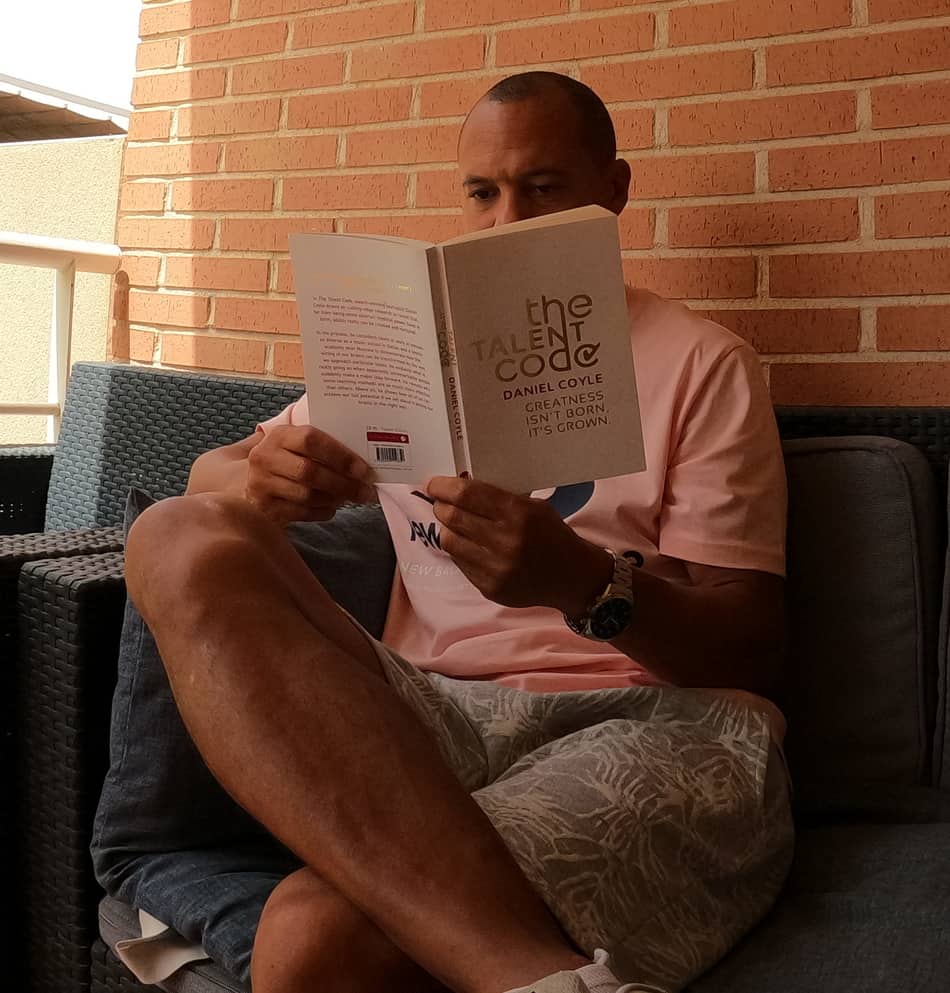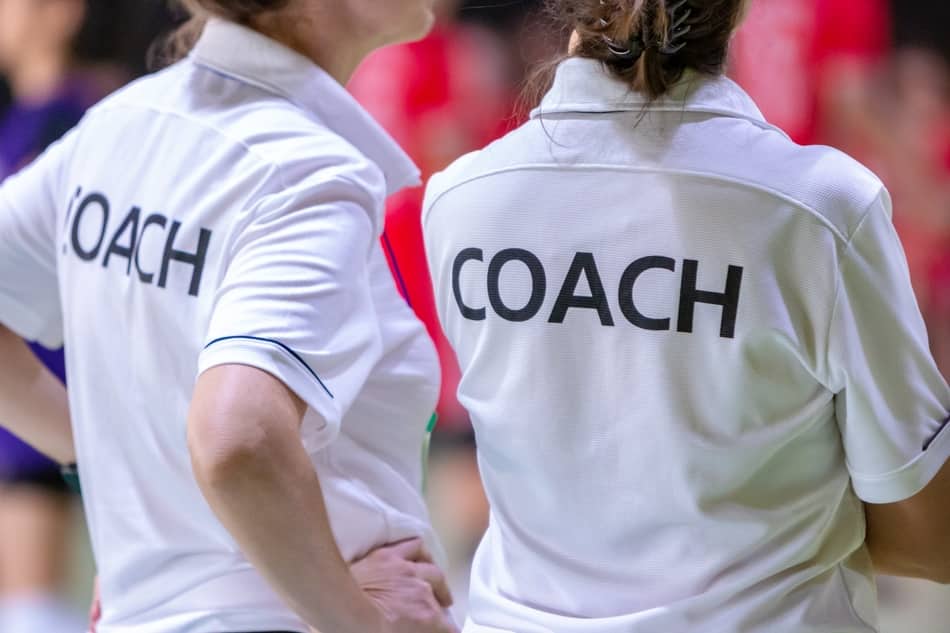Are you a football (soccer) coach who wants to improve your skills?
Well, after many years of experience, I know how important it is for coaches to be continually learning and improving their craft.
That is why I have put together these 7 tips (in no particular order) that any football coach can use to remain on the path of continual development.
- Observe other coaches
- Read books
- Have a mentor
- Take on challenges
- Record your coaching sessions
- Attend workshops and courses
- Listen to podcasts/watch YouTube videos
So let’s start with the first tip …
Observe other coaches
One way to improve your coaching is to watch other coaches and learn from their sessions and coaching techniques.
Now I am not saying that you should simply copy everything that you observe, as it’s important to tailor your sessions specifically for your team (individual players) and to have your own unique coaching style.
However, this tactic can give you fresh ideas on training drills, which you can use and adapt for your sessions, whilst also learning new coaching techniques used by the observed coach.
These observations might include:
- Where the coach positions themself during an exercise
- The tone of voice used when speaking with players
- Types of feedback the coach gives to the players
Read books

In addition to observing other coaches, reading books and articles is beneficial to any coach!
Whilst many people will tend to buy books that contain multiple training drills, which is very helpful, it is important to think beyond training drills and think holistically about coaching.
Reading about other coaches’ experiences, in various situations, and learning from those experiences will prepare you to deal with a particular situation (that you have little to no experience) without having to make your own potential big mistakes.
Also, studying books on sports psychology is a great way to provoke deeper thoughts about how you manage your team, how you motivate your players, and how to better understand what is going on in their heads.
Reviewing books and up-to-date journals is a hugely advantageous way for soccer coaches to not get left behind and to constantly be learning the most up-to-date information.
Have a mentor

Having a mentor is a great way to improve your coaching.
A mentor is typically an experienced coach who can help guide you, answer any questions that you might have, and give you constructive feedback.
The relationship with your mentor should be based on trust and mutual respect, as this will allow for more open and honest conversations.
Your mentor can help you by:
- Identifying your strengths and weaknesses as a coach
- Providing you with resources (books, articles, websites, etc.)
- Observing your coaching sessions and providing feedback
- Being someone whose ready to listen to anything that is on your mind
It is important that when you receive feedback from your mentor that you are open-minded and do not become defensive when hearing criticism. Use the information to find a way of doing things better the next time.
Don’t be emotional about feedback!
Take on challenges
As the saying goes …
❝The cost of failure is … learning❞
Neil Strauss
Just as we tell players not to be scared of making mistakes, this is also true for soccer coaches.
If you are going to become better a coach than we were yesterday, then you need to be continually tested and know that failure is a big possibility, so that you can reflect and learn from the experience.
You only have to look at the following managers/coaches to understand that every coach will experience failure at some point in their career.
- Sir Alex Ferguson (who did not win a league title with Manchester United for the first 6 seasons) went on to win 13 Premier League titles and many other trophies.
- José Mourinho (who was sacked by Chelsea when the team was sitting in 16th place) has gone on to win multiple trophies with Manchester United and Roma.
- David Moyes (sacked by Manchester United, Real Sociedad) has come back and experienced relative success with West Ham United since his return to the club.
Record your coaching sessions
Now I realise that this may not be possible for everyone due to the equipment needed and possible expense, but if you can, videoing your sessions is a fantastic tool to be able to look back at the previous session and reflect on everything that happened, such as:
- Did the session flow well?
- Was communication with the players good?
- Did the players understand the learning objectives/instructions?
- Did the players show progress
- Was the structure of the session good?
These are just a few examples of what you could reflect upon as you review your session.
Attend workshops and courses
In addition to the previous four tips, attending workshops and courses is an excellent way to improve your coaching.
These will typically be run by experienced coaches and will cover a range of topics that will help you develop as a coach.
Some workshops and courses might last for just a day, whilst others might last for several days or even weeks.
Many courses are becoming more freely available to attend online.
It is important to get out there and network with other coaches, learn from their experiences, and soak up as much knowledge as possible!
Listen to Podcasts / Watch Youtube Videos

Listening to podcasts and watching videos on Youtube is a brilliant way of continuing your coaching education whilst on the go.
Podcasts are usually interviews with well-renowned coaches, managers, or players in which they discuss their experiences and share their knowledge.
There are many fantastic podcasts available for free that can be easily downloaded and listened to at a time that suits you.
Youtube is another brilliant resource where you can watch videos on coaching sessions, player development, training drills, and so much more.
There are thousands of videos available on Youtube, with new ones being uploaded every day, so there is always something new to watch and learn from.
People interested in coaching may be interested to know what traits or skills are required to be a good football coach.
So here is a non-exclusive list of traits a good soccer coachshould possess:
- Passionate
- Patient
- Dedicated
- Organised
- Motivational
- Knowledgeable
- Respectful
- Hardworking
Passionate
A good soccer coach is passionate about the sport, their team, and the individual players.
However, please do not confuse passion for screaming and shouting!
All coaches are different and whilst some coaches are constantly screaming at their players, this does not mean that coaches who are not shouting every other minute of a game, are any less passionate than those coaches who do.
What is important is that a coach is fully engaged in his job as a coach and that they are always looking to continually develop the players throughout the season.
Patient
A good soccer coach must be patient, especially when working with younger players.
Players will naturally make mistakes during a game and it is important that the coach does not overreact to these errors.
If a coach loses their patience easily, they will only end up frustrating their players and this will have a negative impact on the team’s performance.
Dedicated
To be a successful soccer coach you need to be dedicated, which means you are prepared to always go the extra mile for the team.
This may mean putting in extra hours on the training pitch, even when you do not feel like it, and speaking with parents or players outside of working hours to make sure that players are happy and there are no issues that need to be dealt with.
Organised
A good soccer coach must be organised, as this is a key aspect of coaching.
If a coach is not organised, it will be difficult to run training sessions effectively and the team will not be able to progress.
A coach must have a well-planned training schedule that is followed but also have backup training sessions for different situations such as:
- A change in the number of players
- bad weather conditions
- Available space to train
This will ensure that the players are always working on areas that need improvement.
Motivational
A good soccer coach must be able to motivate their players, as this is a key part of coaching.
If players are not motivated, they will not be fully engaged and their performance and possible behaviour may suffer.
A coach must be able to find different ways to motivate their players, as each player will respond to different methods of motivation.
For example, some players may respond well to positive reinforcement, whilst others may need a more stern approach.
Knowledgeable
A good soccer coach must be knowledgeable about the game of soccer.
This means having a good understanding of…
- The rules of the game
- Tactics
- Technical skills
- Physical components of the game
It is also vital for a coach to keep up to date with the latest trends in soccer, as this will allow them to adapt their coaching methods accordingly.
A coach must also be able to pass on this knowledge to their players in a way that is easy for them to understand.
Respectful
A good soccer coach must be respectful of their players, as this is a key part of building a positive relationship with them.
If a coach is constantly shouting at their players or belittling them, it will only lead to resentment and a lack of respect.
A coach must also be respectful of the game itself and the officials that are officiating the game. This will set a good example for the players and the player’s behaviour will reflect that of the coach.
Hardworking
A good soccer coach must be prepared to work hard, as this is a key part of the job.
A coach must be able to put in the hours, both in terms of coaching and planning, as well as dealing with any other administrative tasks that are required.
A coach must also be willing to travel, as this may be required for away games or tournaments which may coincide with your social time.
I hope that you found these tips helpful and that you can use them to improve your coaching.
Remember, it is never too late to learn and improve!
